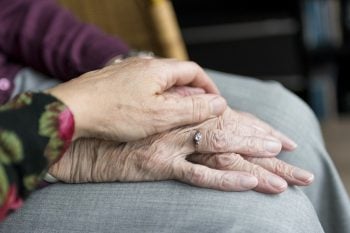What is an End-of-Life Doula, and Do I Need One?
Most people associate the word and profession doula with the birthing process. Traditionally, a doula is a non-medical holistic professional who assists women in labor and delivery—providing emotional support, training and education, physical assistance, and services to the family. Not every woman who gives birth uses a doula, but many women who want a more natural birth process prefer to have these professionals at their side rather than more formal (and seemingly impersonal) medical professionals.
In terms of palliative care, an end-of-life doula plays a similar role. The term doula comes from the ancient Greek word for “woman’s servant,” which is why they are so commonly associated with birth and motherhood. Throughout history, the role of caregiver to the elderly has often fallen to women. Thus, it makes sense that the role extends to providing services during the transition to death.
What Does an End-of-Life Doula Do?
An end-of-life doula provides education, resources, referrals, and support to the entire family as they approach the end of a loved one’s life. It does not matter whether death is likely to occur in a few weeks, a few months, or even a few years—their role is to provide the necessary support to help everyone deal with both the physical and emotional sides to death.
Depending on the situation, this might mean:
- Helping navigate end-of-life planning (including finances and funeral plans)
- Patient advocacy
- Emotional support for both the dying person and his/her family
- Physical comfort and non-medical care
- In-home caregiving
- Companionship
- Practical assistance with daily tasks, chores, and errands
- Cleaning and care of the deceased after he/she has passed
- Contact and mediation with the funeral home
Like birth doulas, the amount of support and hands-on assistance provided by an end-of-life doula depends on what the family wants and needs. Some might simply want a friend who happens to have experience with death and dying. Others might require someone to step in and provide hands-on support so they can attend to their own needs. For still others, the end-of-life doula is part of a complete package of hospice care providers that includes spiritual guides, nurses, doctors, caregivers, and social workers. Because end-of-life doulas focus more on holistic health than more formal medical care, they are best suited when you want a natural and non-medical passing.
Where to Find an End-of-Life Doula
End-of-life doulas are still very new in the field of hospice and funeral planning, so you might not find them available everywhere. In many cases, hospice workers perform many of the same functions, but in a more formal and established role. Ask your doctor, hospice, or funeral home for referrals to providers in your area.




